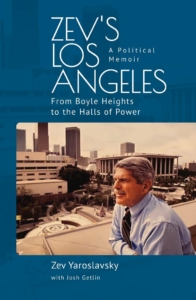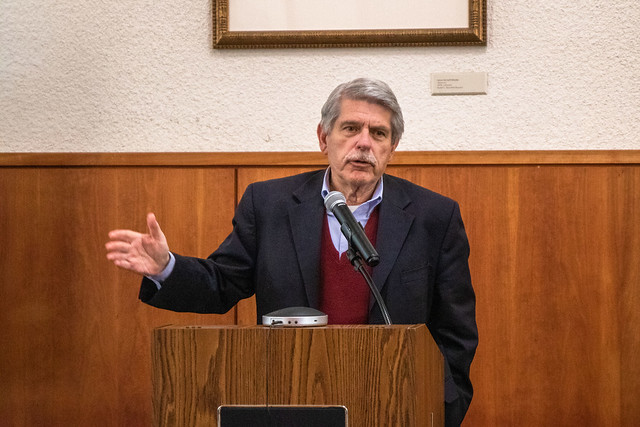Yaroslavsky Memoir Offers Lessons for L.A. and Beyond
 A newly published political memoir by Zev Yaroslavsky weaves tales from his life and family with a half-century arc of Los Angeles history, which he helped shape as a longtime fixture in the region’s civic life. “Zev’s Los Angeles: From Boyle Heights to the Halls of Power,” shares stories about Yaroslavsky’s early years as the son of Ukrainian Jewish immigrants, his entry into social activism as a young man, and his four decades serving on L.A.’s City Council and County Board of Supervisors before joining UCLA Luskin as director of the Los Angeles Initiative. While in public office, Yaroslavsky championed health care, transit, police accountability, fiscal stewardship, the arts and the environment in Los Angeles. The book, however, reaches beyond borders. “The stories I’m telling aren’t just vivid historical moments. Each one offers lessons about how to use power, how to make government listen to the people it serves, and how to bring about change — all without sacrificing one’s values or integrity,” Yaroslavsky writes. At a June 6 event at Royce Hall hosted by the UCLA Luskin Center for History and Policy, Yaroslavsky discussed the book with UCLA Professors David Myers and Gary Segura and Alisa Belinkoff Katz, co-director of the Los Angeles Initiative. The conversation delved into how far the city has come, but also how the struggle continues against income inequality, homelessness, racial tension and other societal ills. “Zev’s Los Angeles” is dedicated to Yaroslavsky’s late wife, Barbara Edelstein Yaroslavsky, whose legacy is enshrined in her decades of community service “performed with grace, generosity and love.”
A newly published political memoir by Zev Yaroslavsky weaves tales from his life and family with a half-century arc of Los Angeles history, which he helped shape as a longtime fixture in the region’s civic life. “Zev’s Los Angeles: From Boyle Heights to the Halls of Power,” shares stories about Yaroslavsky’s early years as the son of Ukrainian Jewish immigrants, his entry into social activism as a young man, and his four decades serving on L.A.’s City Council and County Board of Supervisors before joining UCLA Luskin as director of the Los Angeles Initiative. While in public office, Yaroslavsky championed health care, transit, police accountability, fiscal stewardship, the arts and the environment in Los Angeles. The book, however, reaches beyond borders. “The stories I’m telling aren’t just vivid historical moments. Each one offers lessons about how to use power, how to make government listen to the people it serves, and how to bring about change — all without sacrificing one’s values or integrity,” Yaroslavsky writes. At a June 6 event at Royce Hall hosted by the UCLA Luskin Center for History and Policy, Yaroslavsky discussed the book with UCLA Professors David Myers and Gary Segura and Alisa Belinkoff Katz, co-director of the Los Angeles Initiative. The conversation delved into how far the city has come, but also how the struggle continues against income inequality, homelessness, racial tension and other societal ills. “Zev’s Los Angeles” is dedicated to Yaroslavsky’s late wife, Barbara Edelstein Yaroslavsky, whose legacy is enshrined in her decades of community service “performed with grace, generosity and love.”
Listen to a conversation with Yaroslavsky on the Center for History and Policy’s “Then and Now” podcast.
View photos from the book event on Flickr.

